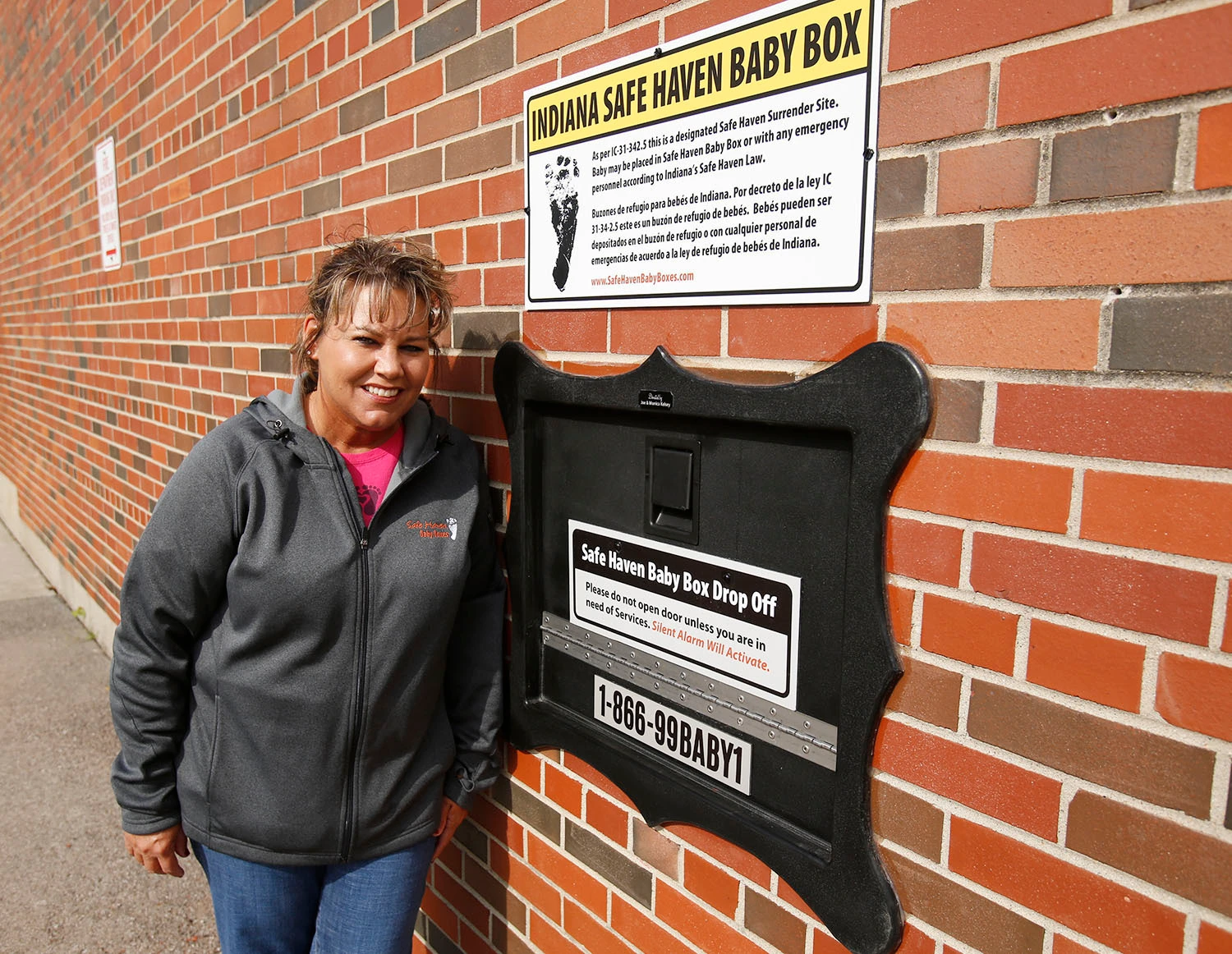Safe Haven Baby Boxes and A Safe Haven for Newborns are two charities with similar names and the same goal: providing distressed mothers with a safe place to surrender their unwanted newborns instead of dumping them in trash cans or along roadsides.
But a fight between the two is brewing in the Florida Senate. An existing state law, supported and promoted by the Miami-based A Safe Haven, allows parents to surrender newborns to firefighters and hospital workers without giving their names. A new bill, supported by the Indiana-based Safe Haven Baby Boxes, would give fire stations and hospitals the option to install the group’s ventilated and climate-controlled boxes, where parents could drop off their babies without interacting with fire or hospital employees.
The bill recently passed the Florida House unanimously, but there is a long-shot effort to block it in the Senate, where it might be considered this week. Opponents call the boxes costly, unnecessary and potentially dangerous for the babies, mothers, firefighters and hospital workers. Each side accuses the other of being financially driven.
The fight is getting extra attention because Republican Gov. Ron DeSantis and Florida’s GOP-dominated Legislature are expected to soon ban abortions performed more than six weeks after conception, lowering the state’s current limit of 15 weeks.
Similar baby-box bills have been approved recently by lawmakers in Kansas, Montana and Mississippi and sent to those states’ governors for approval. West Virginia’s legislature is also considering such a bill. The boxes are already allowed in nine states, mostly in the Midwest and South, with the largest numbers in Indiana, Arkansas, and Kentucky, respectively. About 145 boxes have been installed since the first in 2016, with 25 newborns surrendered through one, Safe Haven Baby Boxes says.
Just one baby has been left in Florida’s only box, installed two years ago at a central Florida firehouse without state authorization. The boxes open from outside the building, allowing the parent to place the baby in a bassinet as a bag containing instructions and maternal medical advice drops out. The door locks when it is reclosed and the agency is notified electronically. Safe Haven Baby Boxes says the average response time is two minutes.
“Giving women an option of (total) anonymity is just that, an option. Why would (opponents) want to take that away from women?” said the group’s founder, firefighter Monica Kelsey, who was abandoned as a newborn and is an outspoken abortion opponent. She accused A Safe Haven for Newborns of fearing a loss of grants if the boxes are installed, something the group denies.
Republican Rep. Jennifer Canady, the bill’s lead sponsor, declined an interview request. She said in a statement that her proposed law would be “an important next step to provide options to save lives and protect life at every stage.”
Joel Gordon, a spokesman for A Safe Haven for Newborns and deputy chief at a suburban Fort Lauderdale fire department, suggested that Kelsey possibly profits from the boxes. She denies that. Her group gets mixed reviews from organizations that monitor charities.
Gordon also contended that the bill’s proponents have opposed all amendments that he says would make the boxes safer and the program more workable. A Safe Haven trains fire departments and hospitals on how to implement the current law.

 Sports2 years ago
Sports2 years ago
 Entertainment2 years ago
Entertainment2 years ago
 News2 years ago
News2 years ago
 News3 years ago
News3 years ago
 News3 years ago
News3 years ago
 Tech3 years ago
Tech3 years ago
 Sports2 years ago
Sports2 years ago
 Tech3 years ago
Tech3 years ago



